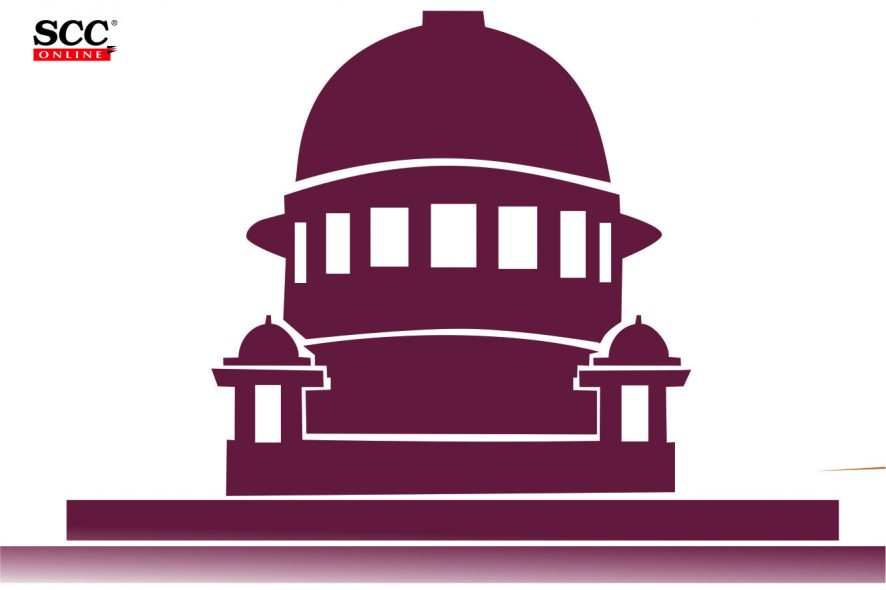Supreme Court: The 3-judge bench of Ashok Bhushan, R. Subhash Reddy and MR Shah, JJ has upheld the constitutionality of imposition of GST on lotteries, betting and gambling.
Here are the key takeaways from the judgment:
Whether the inclusion of actionable claim in the definition of goods as given in Section 2(52) of Central Goods and Services Tax Act, 2017 is contrary to the legal meaning of goods and unconstitutional?
The inclusion of actionable claim in definition “goods” as given in Section 2(52) of Central Goods and Services Tax Act, 2017 is not contrary to the legal meaning of goods nor it is in conflict with the definition of goods given under Article 366(12).
“The Constitution framers were well aware of the definition of goods as occurring in the Sale of Goods Act, 1930 when the Constitution was enforced. By providing an inclusive definition of goods in Article 366(12), the Constitution framers never intended to give any restrictive meaning of goods.”
Parliament by the Constitution (One Hundred and First Amendment) Act, 2016 inserted Article 246A, a special provision with respect to goods and services tax in which special power has to be liberally construed empowering the Parliament to make laws with respect to goods and services tax. Article 246A begins with non obstante clause that is “Notwithstanding anything contained in Articles 246 and 254”, which confers very wide power to make laws. When the Parliament has been conferred power to make law with respect to goods and services, the legislative power of the Parliament is plenary.
“The power to make laws as conferred by Article 246A fully empowers the Parliament to make laws with respect to goods and services tax and expansive definition of goods given in Section 2(52) cannot be said to be not in accord with the constitutional provisions.”
Whether the Constitution Bench’s observation ‘lottery is an actionable claim’ in Sunrise Associates v. Govt. of NCT of Delhi, (2006) 5 SCC 603 a law or obiter dicta?
The definition of goods in Section 2(j) as noticed by the Constitution Bench states that ‘goods’ means all kinds of movable property (other than newspaper, actionable claims, stocks, shares and securities). The exclusion of the actionable claims from the goods as enumerated in the definition is also a part of the definition.
“If a particular item is covered by exclusion it is obvious that it does not fall in the definition of the goods. When the Constitution Bench came to the conclusion that the lottery is an actionable claim it was considering the definition of 2(j) itself and what has been held by the Constitution Bench cannot be held to be obiter dicta.”
The Constitution Bench in Sunrise Associates has categorically held that lottery is actionable claim after due consideration which is ratio of the judgment. The expansion of definition of goods under Section 2(52) of Act, 2017 by including actionable claim is in the line with the Constitution Bench pronouncement in Sunrise Associates and no exception can be taken to the definition of the goods as occurring in Section 2(52).
Whether exclusion of lottery, betting and gambling from Item No.6 Schedule III of Central Goods and Services Tax Act, 2017 is hostile discrimination and violative of Article 14 of the Constitution of India?
The Constitution Bench in State of Bombay Vs. R.M.D. Chamarbaugwala, AIR 1957 SC 699 has clearly stated that Constitution makers who set up an ideal welfare State have never intended to elevate betting and gambling on the level of country’s trade or business or commerce.
Lottery, betting and gambling are well known concepts and have been in practice in this country since before independence and were regulated and taxed by different legislations. When Act, 2017 defined the goods to include actionable claims and included only three categories of actionable claims, i.e., lottery, betting and gambling for purposes of levy of GST, it cannot be said that there was no rationale for including these three actionable claims for tax purposes.
“It is a duty of the State to strive to promote the welfare of the people by securing and protecting, as effectively as it may, a social order in which justice, social, economic and political, shall inform all the institutions of the national life.”
Hence, there is no violation of Article 14 in Item No. 6 of Schedule III of the Act, 2017.
Whether while determining the face value of the lottery tickets for levy of GST, prize money is to be excluded?
[Skill Lotto Solutions v. Union of India, 2020 SCC OnLine SC 990, decided on 03.12.2020]
*Justice Ashok Bhushan has penned this judgment
For petitioner: Senior Advocate Ravindra Shrivastava,
For Union of India: Additional Solicitor General Vikramjit Banerjee
For Intervenor: Senior Advocate C.A. Sundaram








Thanks, Prachi for sharing this topic.